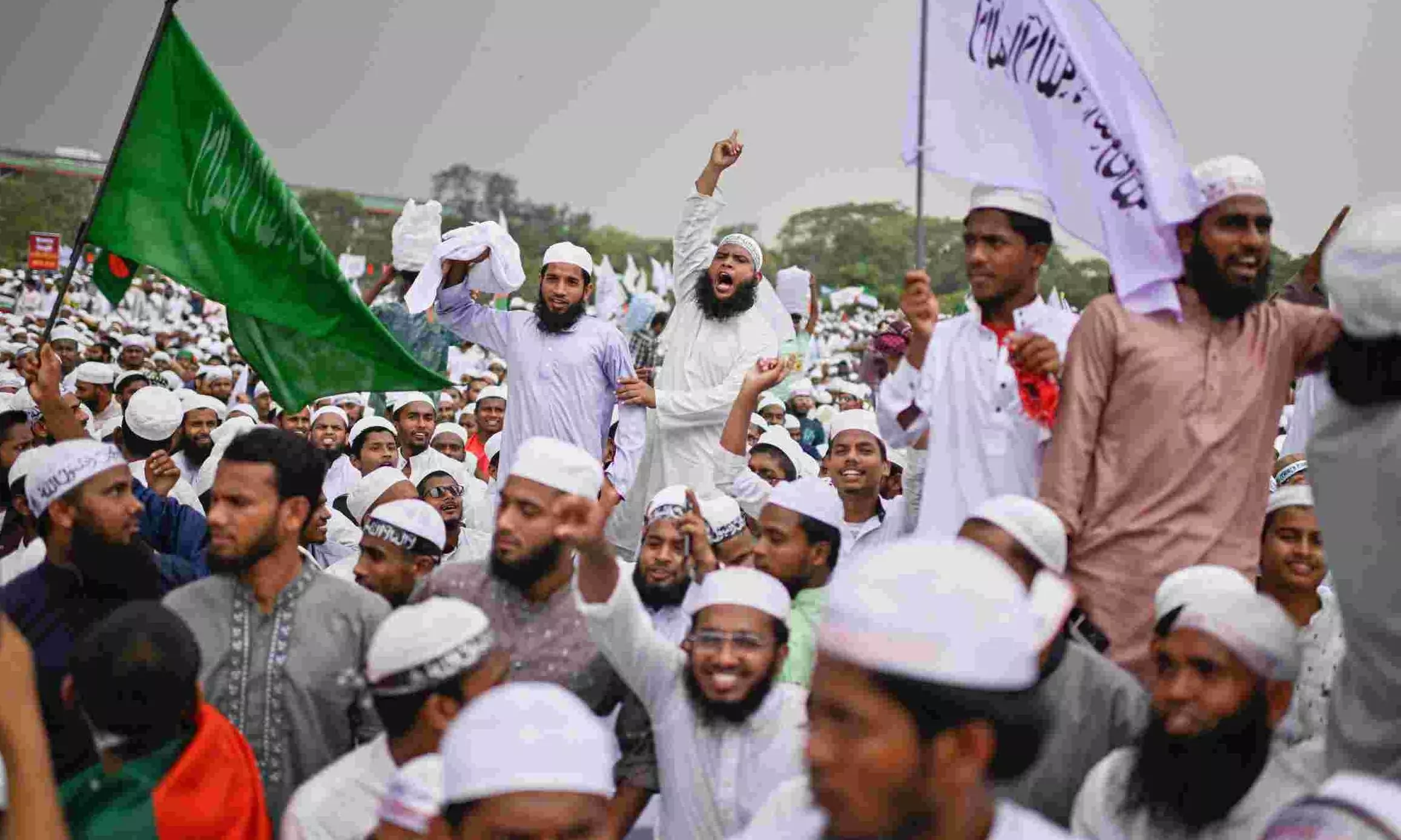
- Home
- India
- World
- Premium
- THE FEDERAL SPECIAL
- Analysis
- States
- Perspective
- Videos
- Sports
- Education
- Entertainment
- Elections
- Features
- Health
- Business
- Series
- In memoriam: Sheikh Mujibur Rahman
- Bishnoi's Men
- NEET TANGLE
- Economy Series
- Earth Day
- Kashmir’s Frozen Turbulence
- India@75
- The legend of Ramjanmabhoomi
- Liberalisation@30
- How to tame a dragon
- Celebrating biodiversity
- Farm Matters
- 50 days of solitude
- Bringing Migrants Home
- Budget 2020
- Jharkhand Votes
- The Federal Investigates
- The Federal Impact
- Vanishing Sand
- Gandhi @ 150
- Andhra Today
- Field report
- Operation Gulmarg
- Pandemic @1 Mn in India
- The Federal Year-End
- The Zero Year
- Science
- Brand studio
- Newsletter
- Elections 2024
- Events
- Home
- IndiaIndia
- World
- Analysis
- StatesStates
- PerspectivePerspective
- VideosVideos
- Sports
- Education
- Entertainment
- ElectionsElections
- Features
- Health
- BusinessBusiness
- Premium
- Loading...
Premium - Events

Human rights experts have pointed to the high volume of cases against the League on trumped-up charges, with some dubbing the phenomenon 'judicial terrorism'
On May 10, even as India and Pakistan were locked in a sky war over the Pahalgam terror attack, Bangladesh's interim government took a decisive step to neutralise its most potent political challenge and reorder the country's political landscape.
It imposed a ban on all political activities of the Awami League, including those in the online space, under the Anti-Terrorism Act until ongoing trials for war crimes allegedly committed by the party and its leaders were completed.
This is a historically significant action against the Awami League which not only led the country’s war of independence against Pakistan's military junta but also ruled Bangladesh for almost half of its post-independence time.
Virtual blanket ban
Though the Awami League has faced fierce persecution on several occasions when thrown out of power violently or electorally, it was only banned once -- by the Yayha Khan-led Pakistani military junta in 1971 after its leader Sheikh Mujibur Rahman declared independence.
Also read | Border alert, blocked channels: Indo-Pak crisis has impact on Bangladesh
The current ban is not a blanket one. But since it is linked to the trials in the International Crimes Tribunal which will take a long time, this move is surely aimed at denying the Awami League its legitimate space as a recognised political party and effectively preventing its participation in elections, local or national.
The high volume of cases filed against Awami League leaders and activists, including ousted Prime Minister Sheikh Hasina, under the Anti-Terrorism Act makes early disposal impossible. Not the least because a huge number of these cases are on trumped-up charges.
'Judicial terrorism'
Western and Bangladeshi human rights experts have already pointed to this high volume of cases on trumped-up charges, with some even describing the phenomenon as 'judicial terrorism'.
That the interim government is least interested in addressing such criticism becomes evident from its latest step of banning all political activities of the Awami League. Such a step was taken against its student front, the Chatra League, last year.
So, this is a classic case of an unelected interim government, for establishing which there is no provision in the Bangladesh Constitution, banning a legally established political party with a chequered history of leading both the war of independence and the campaign to restore democracy after two decades of military rule.
BNP succumbs
The executive decision taken during a special meeting of the Advisory Council of the Muhammad Yunus-led interim government also approved an amendment to the International Crimes Tribunal Act, allowing the tribunal to penalise political parties, their affiliates and supporters if faced with threats to national security.
Also read | Why India's anti-terror strike in Pakistan is a lesson for Bangladesh
Allowing the tribunal to 'penalise political parties' is a clear threat to the Bangladesh Nationalist Party ( BNP), the Awami League's arch-rival, which has belatedly threatened to launch street protests demanding early elections.
BNP hails ban
The BNP has so far also opposed any ban on political parties including the Awami League. Its leaders said a whole party cannot be banned because some leaders were involved in criminal activity like murder and abduction of political opponents.
Perhaps the BNP, which fancies its chances of winning the next elections, does not want a parliament without a legitimate opposition. But after the executive decision on May 10, the BNP has welcomed the ban on the Awami League, only saying that such a decision should be taken through an extensive consultative process.
Reforms, no polls
Since he took over as the chief adviser of the military-installed interim government, Nobel laureate Muhammad Yunus has displayed an unconcealed reluctance to hold parliament elections in Bangladesh. He said the country needed large-scale structural reforms to get over the 'serious aberrations' afflicting Bangladesh's fractious polity.
Watch | Has Bangladesh grabbed Indian land? Here’s what activist Kirity Roy says
Usually, such reforms are expected to be carried out by an elected parliament and not by an unelected interim government put in place by the military to essentially conduct a free and inclusive election.
Bowing to Islamists
Yunus set up several commissions to come up with suggested reforms in different spheres. But how serious he was about implementing such reforms became evident recently when Yunus initially supported and then quietly backed off from committing to implement the recommendations of the Women Reforms Commission following aggressive demonstrations by Islamist groups, until now the main support base for Yunus.
The recommendations included a pitch for laws to ensure gender equality in inheritance and divorce, legalisation of sex work and the creation of 300 seats reserved for women in parliament in addition to the 300 general seats now. The Islamists threatened to bring down Yunus and his interim government if the recommendations were implemented.
Immediately after these protests by radicals, the newly formed National Citizens Party (NCP) hit the streets demanding a ban on the Awami League. Many say this helped Yunus divert attention from the gender issue which had upset the Islamists and regain their support.
Promoting NCP
So, he wasted no time in going for the ban on the country's biggest political party, which has been wholeheartedly welcomed by the Islamists who want to erase the legacy of the 1971 Liberation War and create a Sharia-driven Islamic state instead of the Westminster-style democracy.
Also read | Why Bangladesh warming up to US's Myanmar plan spells trouble for India
Yunus may be trying to promote the NCP, already derided as the 'Kings Party', because the student-youth leadership at its helm are the ones who put him at the top of the interim government after the July-August protests last year.
The May 10 resolution of the Advisory Council makes it clear that "the ban is intended to safeguard national security and sovereignty, ensure the protection of leaders and activists of the July Movement, and guarantee the safety of plaintiffs and witnesses associated with the International Crimes Tribunal".
NCP and Islamists
So, the NCP, still a fledgling party already hit by factional squabbles, is guaranteed state protection against established political parties. Its leaders have already prioritised the completion of trials against Hasina and other Awami League leaders over the holding of early elections.
NCP supremo Nahid Islam has even said the law and order condition is not satisfactory and elections cannot be held in such a situation. So, he is even prepared to accept the failure of the interim government, in which he was an adviser until recently, to delay elections.
But the NCP leaders, who led the oust-Hasina agitation, have strong links to the Islamist groups which is why Yunus has been very soft on them. Hardcore Islamist terrorists, convicted for murder and sedition, have been released much before their sentence on bail or even absolved of charges after Yunus took charge. Radicals involved in large-scale murders of policemen have been left scot-free.
Western doublespeak
The West, which was so critical of Hasina's 'authoritarian regime ' and accused her of staying in power through fraudulent elections, now seems perfectly at home with an unelected interim government with no Constitutional basis and no intent to hold early elections.
As long as the Nobel laureate agrees to play ball with the West on issues like the proposed Bangladesh-to-Myanmar Rakhine humanitarian corridor, they are in no hurry to push for elections This humanitarian corridor, first proposed by the UN secretary general, seems to have a military dimension -- to supply the rebel groups for bringing down the China-backed Burmese military junta to deny Beijing land-to-sea access to the Bay of Bengal.
Corridor to Myanmar
Several high-level US officials including the deputy commander of the US Pacific Command, Lt Gen JB Vowell, have visited Dhaka in the last few weeks to get the corridor up and running.
Also read | Why Islamist groups are spewing rage on Yunus over women's panel report
Both the Awami League and the BNP have opposed the proposed corridor on grounds it may needlessly drag Bangladesh into the escalating Myanmar civil war in the larger spectrum of a China-US shadow tussle. But Yunus seems to have okayed the corridor because this helps him stay on in power without having to face elections. The BNP may also grudgingly fall in line.
So long as its strategic objectives are fulfilled, the West can shelve its concerns for Bangladesh's democracy. And so long as Yunus can hang on to power, he would only be too willing to do what his global patrons want.
(The Federal seeks to present views and opinions from all sides of the spectrum. The information, ideas or opinions in the articles are of the author and do not necessarily reflect the views of The Federal)


